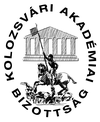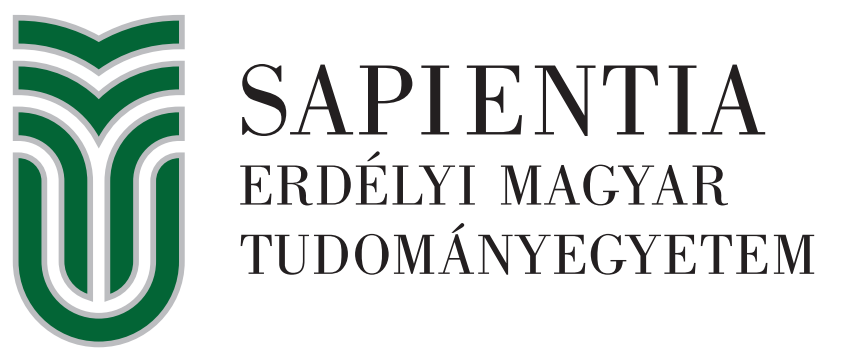utolsó frissítés:
Tanulmány, szakcikk
- > Closely watched traditions. Review article of Tamás Berkes: The Antinomies of Czech Intellectual History, (Szigorúan ellenőrzött hagyományok. Berkes Tamás: A cseh eszmetörténet antinómiái). In: Élet és Irodalom, 23 January 2004, p. 24.
- > From the Ship of State to the Gardens of Epicurus. The dissolution of the civic humanist political language in the essays of William Temple. (Az állam hajójától Epikurosz kertjeiig). In: Tibor Frank, ed., Angliától Nagy-Britanniáig, Budapest, Gondolat Kiadó, 2004. 109-132.
- > The Terror of History. A Sketch on the Intellectual History of the Debates on National Character in Inter-War Eastern-Europe (A történelem rémülete. Eszmetörténeti vázlat a két világháború közötti kelet-európai nemzetkarakterológiai vitákról). In: Zoltán Iván Dénes, ed. - A szabadság értelme ? az értelem szabadsága, Budapest, Argumentum, 2004., 199-224.
- > Constantin Iordachi and Balázs Trencsényi: In Search of a Usable Past. In: The Question of National Identity in Romanian Studies, 1990-2000, East European Politics and Societies, 2003/3., 415-453.
- > Peasants Into Bulgarians, or the Other Way Round: The Discourse of National Psychology. In: Shawn Gorman ed., Locations of the Political, Vienna, IWM Junior Visiting Fellows Conferences, Vol. 15., 2003.
- > Roundtable discussion on forgiving in politics (Kerekasztal-beszélgetés a megbocsátásról); with Zoltán Balázs, András Czeglédi, Péter Losonczi, Balázs Mezei. In: Századvég 27, 2003/3.
- > "Hungarian periodicals in the 1990s: strategies of recovery and directions of development" (Венгерская периодика 90х: стратегии выживания и направления развития), in: Неприкосновенный запас, 2002 No. 5 (25), pp. 45-52.
- > Conceptualizations of Statehood and Nationhood: The Hungarian Reception of Reason of State and the Political Languages of National Identity in the Early Modern Period. In: East-Central Europe, vol 29. part 1-2., 2002 Autumn, 1-26.
- > Keywords and Political Languages: Reflections on the East-Central European Adaptation of Contextualist-Conceptualist Intellectual History (Kulcsszavak és politikai nyelvek: gondolatok a kontextualista-konceptualista eszmetörténeti módszertan kelet-közép-európai adaptációjáról). In: András Szekeres, ed. ? A történész szerszámosládája. A jelenkori történeti gondolkodás néhány aspektusa, Budapest: L'Harmattan - Atelier füzetek, 2002, 117-159.
- > Reason Without State: Models of Political Community and the Adaptation of Ragion di Stato in the Works of Miklós Zrínyi (Államrezon ? állam nélkül: A politikai közösség modelljei és a ragion di stato-diskurzus adaptációja Zrínyi Miklós írásaiban) (revised Hungarian version). In: András Czeglédi et al., eds. Ész, természet, történelem, Budapest, Áron, 2002, 8-49.
- > Skeletons in the Closet: Lucian Boia on the Romanian Political Myths, (Csontvázak a szekrényben ? Lucian Boia a román politikai mítoszokról). In: Buksz, 2002 Summer, 136-144. Republished. In: Társadalmi önismeret és nemzeti önazonosság Közép-Európában, Budapest, Teleki László Alapítvány, 2002, 111-128. [pdf, 145.8k]
- > The 'Third Way' and Anti-Semitism: On the Source Publication by Krisztián Ungváry, (A harmadik út és az antiszemitizmus - Ungváry Krisztián forrásközléséhez). In: 2000, June 2002. 35-40.
- > To Find the Voice of Angels, and the Devils Dwelling in the Details. A Review Article on János Gyurgyák's book, The Jewish Question in Hungary, (Megtalálni az angyalok hangját és a részletekben lakozó ördögöket,). In: 2000, January 2002, 8-15.; also appeared in English translation: Regio. English Yearbook, 2002, 103-115. [pdf, 112.4k]
- > Zsuzsa Török and Balázs Trencsényi: Workshop at the Central European University: Changing Historical Writing in Central Europe - New Themes, New Methods (Workshop a Közép-Európai Egyetemen: Változó történetírás Közép-Európában ? új témák, új módszerek). In: Korall, Nr. 7-8., March 2002, 208-216.
- > Conceptualising Statehood and Nationhood: The Hungarian Reception of Reason of State, and the Political Language of National Identity in the Early Modern Period. In: History of Concepts Newsletter, Amsterdam, Nr. 4, Summer 2001, 12-20.
- > István Bibó and the Discourse of National Characterology (Bibó István és az alkat-diskurzus). In: Zoltán Iván Dénes ed., Megtalálni a szabadság rendjét, Budapest, Új Mandátum, 2001, 175-207.
- > The 'Münchausenian Moment': Modernity, Liberalism and Nationalism in the Thought of Ştefan Zeletin. In: Balázs Trencsényi, Constantin Iordachi, Zoltán Kántor, Cristina Petrescu, and Dragoş Petrescu, eds., Nation-Building and Contested Identities: Romanian and Hungarian Case Studies, Budapest/Iaşi, Regio Books/Polirom, 2001, 61-81.
- > Sándor Bene: Theatrum Politicum. Public sphere, public opinion, and literature in the early modern period, (Bene Sándor: Theatrum Politicum. Nyilvánosság, közvélemény és irodalom a kora újkorban,) (Review Article). In: BUKSZ, 2000. Winter.
- > Spinoza and the Early Modern Political Languages (Spinoza és a kora újkori politikai nyelvek). In: Gábor Boros ed. Individuum, közösség és jog Spinoza filozófiájában, Budapest, Áron, 2000, 75-122.
- > The Chances of Renewal: Ten Years of Romanian Historiography, 1989-1999 (A megújulás esélyei: a román történetírás tíz éve, 1989-1999) (co-author with Constantin Iordachi), 165-195. In: The Challenges of Romanian Historiography (A román történetírás kihívásai) - thematic block (edited by Constantin Iordachi and Balázs Trencsényi).In Replika 41-42., November 2000., 165-265. [html]
- > The remembrance of forgetting (A felejtés emlékezete), introductory article and edited block on the Romanian debates about the contested political heritage of Emil Cioran and Mircea Eliade. In: 2000, March 2003, 51-75.
- > Reason Without State: Modalities of Political Community and the Adaptation of Ragion di Stato in the Works of Miklós Zrínyi. In: Prudenza Civile, Bene Comune, Guerra Giusta. Percorsi della Ragion di Stato tra Seicento e Settecento, ed. by Gianfranco Borrelli, Naple, Archivio della Ragion di Stato - Adarte, 1999, 49-76.
- > The Art of Peace-Making, Nation-States and the Federalist Conceptions in Eastern-Europe (Bibó and Hodža) (A békecsinálás művészete, a nemzetállamiság, és a kelet-európai föderációs elképzelések. Bibó és Hodža). In: A szabadság kis körei. Tanulmányok Bibó István életművéről, ed. by Zoltán Iván Dénes, Budapest, Osiris, 1999, 102-122.
- > The Political Languages of Hungarian Nationhood in the Early Modern Period. In: The Garden and the Workshop: Disseminating Cultural History in East-Central Europe. In Memoriam Péter Hanák, ed. by Marius Turda, Budapest, Central European University/Europa Institut, 1998, 25-48.
- > Liberal Paradigms and the Political Philosophy of Spinoza (Liberális paradigmák és Spinoza politikai filozófiája). In: Spinoza-tanulmányok, ed. by Gábor Boros, Budapest, Áron Kiadó, 1994, 87-134.
- > In the Shade of Tomorrow: The Uchrony of István Bibó, (A tegnap árnyékában /Bibó István és az Uchronia/). In: Nappali Ház, 1993/2. 35-45.
Közreműködés
- > Ész, természet, történelem (Reason, Nature and History) (András Czeglédi, Zsolt Novák, Dénes Schreiner, Balázs Trencsényi, eds.), Budapest, 2002.
- > Nation-Building and Contested Identities: Romanian and Hungarian Case Studies (Balázs Trencsényi, Dragoş Petrescu, Cristina Petrescu, Constantin Iordachi, and Zoltán Kántor eds.), Budapest/Iaşi, 2001.

Kutatói vendégoldalak
- Bakk Miklós
- Balázs Imre József
- Balogh Brigitta
- Bárdi Nándor
- Bartos-Elekes Zsombor
- Benedek József
- Biró Annamária
- Bodó Barna
- Csata Zsombor
- Dégi L. Csaba
- Demeter M. Attila
- Egry Gábor
- Egyed Péter
- Fosztó László
- Fülöp Mihály
- Gagyi József
- Hermann Gusztáv Mihály
- Horváth István
- Horváth Sz. Ferenc
- K. Lengyel Zsolt
- Kántor Zoltán
- Keszeg Anna
- Keszeg Vilmos
- Kiss Dénes István
- Kiss Tamás
- Kovács András
- Könczei Csilla
- László Márton
- Lőrincz D. József (1956-2021)
- Magyari Tivadar
- Magyari-Vincze Enikő
- Oláh Sándor
- Pál Judit
- Pál-Antal Sándor
- Papp Z. Attila
- Pávai István
- Péntek János
- Péter László
- Pozsony Ferenc
- Salat Levente
- Selyem Zsuzsa
- Sipos Gábor
- Stefano Bottoni
- Szabó Árpád Töhötöm
- Szabó Levente
- Szilágyi N. Sándor
- Tóth Zsombor
- Varga Attila
- Varga E. Árpád
- Veres Valér
- Veress Emőd
- Veress Károly
- Vincze Gábor
- Vincze Hanna Orsolya
- W. Kovács András












